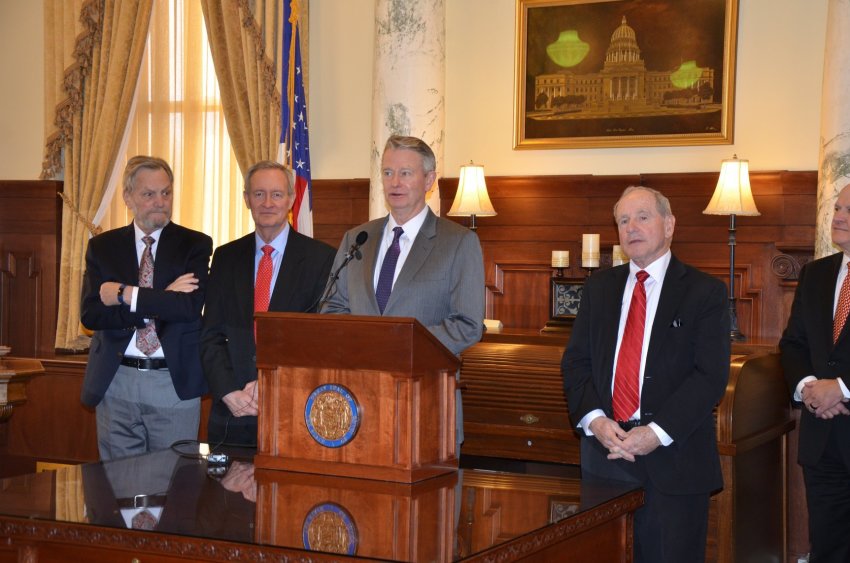Idaho ban on abortion trafficking can mostly go into effect: 9th Circuit

An appeals court panel has partly upheld an anti-trafficking law passed in Idaho last year that prohibits people from transporting minors outside of the state to get an abortion.
A three-judge panel of the U.S. 9th Circuit Court of Appeals released an opinion Monday mostly allowing the state law against abortion trafficking of a minor, known as Idaho Code § 18-623, to go into effect.
The ruling affirmed in part and reversed in part the district court’s preliminarily injunction enjoining Idaho’s abortion trafficking statute and remanded it back to the lower court for further proceedings. The law can mostly go into effect while the lawsuit against it continues.
Circuit Judge M. Margaret McKeown, a Clinton appointee, authored the majority opinion, writing that “the statute is neither void for vagueness nor facially in violation of the First Amendment rights of association.”
“We conclude that Section 18-623 does not restrict typical rights of association protected by the First Amendment,” wrote McKeown. “Idaho is not forcing anyone to refrain from supporting or joining these organizations.”
While the majority opinion upheld parts of the law outlawing harboring and transporting girls to get abortions without parental consent, it also upheld an earlier block on the “recruitment” provision of the law, which it concluded infringes on First Amendment rights.
“It sweeps in a large swath of expressive activities — from encouragement, counseling, and emotional support; to education about available medical services and reproductive health care; to public advocacy promoting abortion care and abortion access,” wrote McKeown.
“It is not difficult to conclude from these examples that the statute encompasses, and may realistically be applied to, a substantial amount of protected speech.”
Circuit Judge Carlos Bea, a George W. Bush appointee, authored a partial dissent, believing that the plaintiffs failed to show standing to sue the state attorney general specifically over the enforcement of the law.
“Here, the sole defendant AG cannot prosecute the plaintiffs — not unless and until one or more of the 44 county prosecutors refuses to prosecute and does so without exercising his or her discretion,” wrote Bea.
“So, to recap, the injunction bars prosecution by someone who cannot prosecute (the AG), but does not bar prosecution by someone who can prosecute (the county prosecutors). What relief from injury does this result provide?”
Idaho Attorney General Raúl Labrador, who defended the state law in court, released a statement Monday celebrating the panel decision, noting that most of the statute can be enforced.
“This is a tremendous victory for Idaho and defending the rule of law as written by the people’s representatives,” he stated. “Idaho’s laws were passed specifically to protect the life of the unborn and the life of the mother.”
“Trafficking a minor child for an abortion without parental consent puts both in grave danger, and we will not stop protecting life in Idaho.”
Legal Voice, a progressive organization helping to represent the plaintiffs, released a statement on Facebook calling the panel decision “a significant victory” due to blocking the recruitment provision.
“It means that Idahoans can continue to speak about abortion healthcare options, even to minors, as an exercise of their First Amendment rights,” stated Legal Voice.
“Unfortunately, the court did not put the rest of the abortion travel ban on hold. It’s essential that the law is blocked in its entirety, as it threatens the many young people who need help from adults who aren’t their parents.”
In April 2023, Idaho Gov. Brad Little signed House Bill 242 into law, which made it illegal for an adult to help an underage girl obtain an abortion without receiving consent from a parent or legal guardian.
“House Bill 242 does not criminalize, preclude, or otherwise impair interstate travel, nor does it limit an adult woman from obtaining an abortion in another state,” stated Little at the time.
“Rather the ‘abortion trafficking’ provision in the bill seeks only to prevent unemancipated minor girls from being taken across state lines for an abortion without the knowledge and consent of her parent or guardian.”
In July 2023, Idaho attorney Lourdes Matsumoto, the Northwest Abortion Access Fund and the Indigenous Idaho Alliance brought legal action against the state over the new law.
Idaho is one of several states that enacted laws banning abortion in nearly all circumstances at all stages of pregnancy following the United States Supreme Court’s overturning of Roe v. Wade in 2022.



























